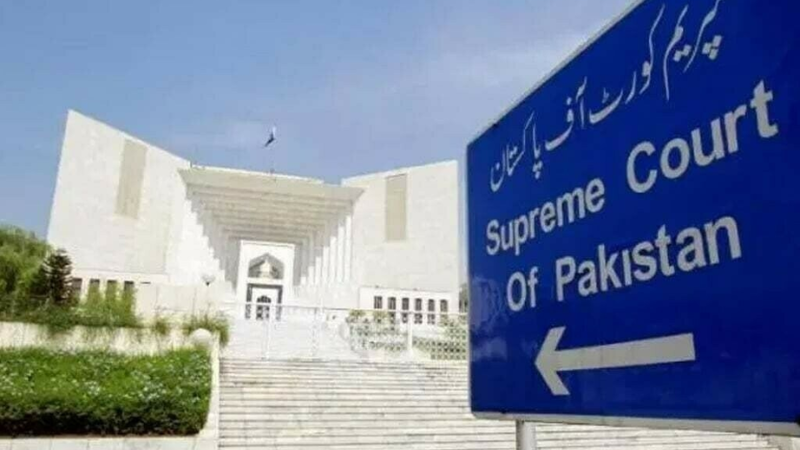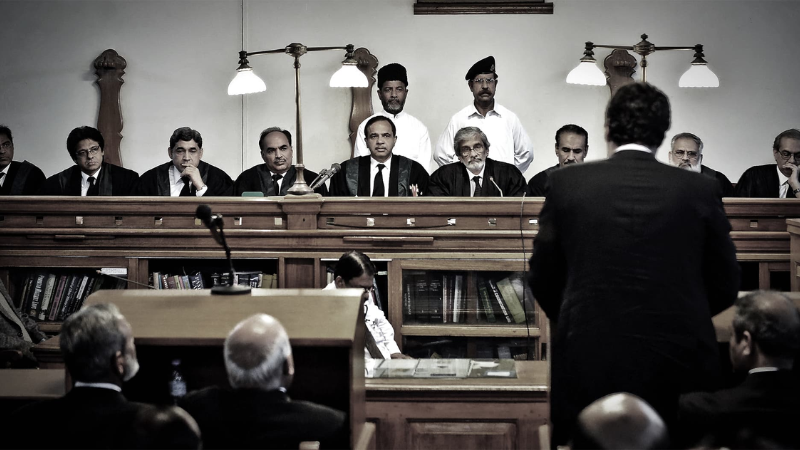Pakistan’s Judicial System and Justice 2025: Important Changes
The judicial system of Pakistan operates under the country’s constitution and legal framework, which was created under the Constitution of the Islamic Republic of Pakistan, 1973. This system works to uphold the rule of law of the land, protect the fundamental rights of the people, and deliver justice.

Table of Contents
1.Structure of the Judicial System:
The judicial system of Pakistan mainly consists of three levels.

2. Supreme Court:
The Supreme Court is the highest court of Pakistan, which interprets the Constitution and takes measures to prevent its violations. The Supreme Court has jurisdiction to hear appeals, and gives final judgment on constitutional matters.

3. High Courts:
Each province of Pakistan has a High Court, which is the highest court of the province. The High Courts hear appeals against the decisions of the subordinate courts and the orders of these courts can be challenged.

4. Subordinate Courts:
The Subordinate Courts consist of Sessions Courts, Civil Courts, and Magistrate’s Courts. These courts hear criminal and civil cases and provide justice at the primary level.

5.Justice system and challenges:
Pakistan’s judicial system appears to be strong and complete, but there are several challenges in the delivery of justice that the judicial system faces on a day-to-day basis.

6.Prolonged litigation:
A major problem in Pakistan is that cases continue for a long time. The number of pending cases in the courts is in lakhs, due to which people do not get prompt justice. Slowness in the justice system is a major obstacle, which undermines public confidence. Delays in hearings, repeated adjournments of dates, and attempts by lawyers to prolong cases lead to delays in justice.
7.Corruption in the Judiciary:
Another important problem that harms the reputation of the judiciary in Pakistan is the presence of corruption in the judiciary. Although corruption rates are low in the higher courts, allegations of bribery and nepotism are common in many cases at the lower levels. This problem is particularly visible in the subordinate courts, where common people find it difficult to get justice.

8.Complexities of the legal system:
Pakistan’s legal system is a combination of English and Islamic law, which is often complicated. The complexities of the law make it difficult for the public to litigate, and the general public lacks understanding of legal rights and the justice system.
9.The need for judicial reform:
Reforms are necessary for the improvement of the judicial system. Several judicial reform measures can be taken to make the delivery of justice faster and more transparent. The use of modern technology in the court system, such as e-courts and online hearing systems, can speed up the trial process. In addition, speedy adjudication of cases and improvement of the system of dates can reduce the number of cases.

10.Independence of Judiciary:
The independence of the judiciary is a fundamental constitutional principle in Pakistan, which aims to make independent decisions in the delivery of justice. However, the judiciary is sometimes accused of political pressure or interference from other institutions. It is important to ensure the independence of the judiciary so that public confidence is restored and they can get their cases decided without any pressure.

11.Access to public justice:
Another important responsibility of the Judiciary is to facilitate and facilitate the delivery of justice to the people. Access to justice is difficult for many people in Pakistan, especially in rural areas where the judicial system is weak.

12.Islamic Law and Judiciary:
Pakistan’s judicial system is based on Islamic principles, which means that Sharia law is also included in court decisions. Decisions in family law, inheritance, marriage, divorce, and other matters are made on the basis of Islamic law. However, the implementation of Islamic laws also faces many problems, particularly with regard to the protection of the rights of women and minorities.

13.Positive Aspects of Judiciary:
Despite the challenges, Pakistan’s judicial system has several positive aspects that strengthen the justice delivery process.

14.Independence of the judicial system:
The judiciary of Pakistan has demonstrated its independence on several important occasions and ensured the supremacy of the Constitution. In particular, the Supreme Court and the High Courts have given independent judgments on several constitutional issues, challenging the actions of the government.

15.Efforts to protect human rights:
Judiciary has played an important role for the protection of human rights in Pakistan. Judiciary has protected fundamental rights in many cases by deciding on issues of public interest. Courts have given important decisions in cases of enforced disappearances, environmental pollution, and minority rights.

16.Judicial Reform Initiatives:
The government has taken several steps to reform the judiciary, including setting up e-courts, increasing the number of judges, and simplifying the legal process to speed up trial.

The result
Pakistan’s judicial system is based on a strong constitutional framework, but there are many challenges in the delivery of justice. Prolonged trials, corruption, legal complications, and limited access to public justice are major challenges facing the judiciary.
——————


